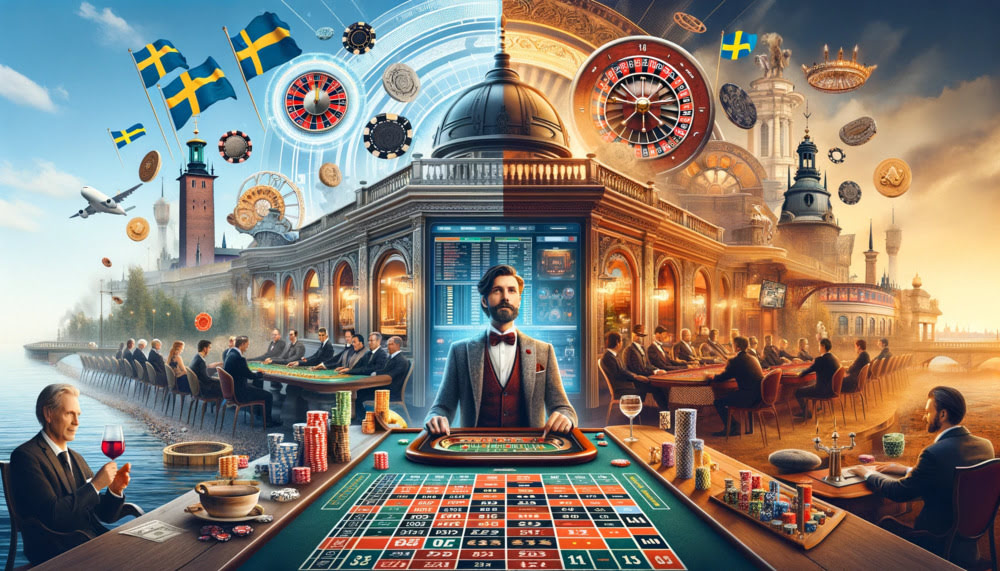
The Evolution of Casino Gaming in Sweden: A Historical Perspective
In the heart of Scandinavia, Sweden stands not just as a beacon of cultural and technological progress but also as a fascinating case study in the evolution of casino gaming. From ancient dice games played by Vikings to the sophisticated online platforms of today, Sweden’s journey through the gambling world is as rich as it is unique. This article delves into this captivating history, tracing the transformation of gambling in Sweden and its impact on both the national and global stages.
Early History of Gambling in Sweden
Gambling in Sweden has roots that intertwine with the country’s history. In the mead halls of the Vikings, rudimentary gambling was already a popular pastime. Ancient runes and artifacts point to games of chance, indicating that Swedes have been engaging in some form of gambling for centuries. This era set the foundational cultural acceptance of gambling, which paved the way for more organized forms in later years.
The Birth of Modern Casinos in Sweden
The turn of the 20th century marked a significant shift with the birth of modern casinos in Sweden. It wasn’t just about playing games; it was about creating experiences. The concept of the “casino” as we know it started to take shape, with establishments offering a blend of gaming and entertainment. During this era, a notable development was the introduction of the Thrills no deposit bonus, a revolutionary concept that allowed patrons to experience the thrill of gambling without the initial financial commitment. This innovation not only attracted a broader audience but also set a precedent for future promotional strategies in the gambling industry.
Post-War Developments and Expansions
Following the war, Sweden saw a surge in economic growth and technological advancement. This period was crucial for the casino industry as it embraced new technologies and expanded its reach. Slot machines and electronic games began to appear, and casinos became more than just a place to gamble; they turned into social hubs, offering a diverse range of entertainment options.
The Swedish Gambling Act and Its Implications
In 2019, a pivotal moment in the Swedish gambling landscape occurred with the introduction of the Swedish Gambling Act. This comprehensive legislation revamped the industry, introducing stringent regulations and licensing requirements. Its aim was to create a more controlled and responsible gambling environment. This Act significantly altered the operation of casinos, emphasizing transparency and player protection.

The Rise of Online Casinos in Sweden
The digital revolution brought about the next significant phase in the evolution of gambling in Sweden. Online casinos transformed the gaming experience, making it accessible from anywhere at any time. Swedish players embraced this new form of gambling, which led to a surge in the popularity of online platforms. The ease of access, coupled with advanced technology, propelled the online casino industry to new heights in Sweden.
Social and Economic Impact of Casino Gaming
Casino gaming has had a profound impact on Sweden’s social and economic fabric. It has contributed significantly to the economy through taxation and employment. On the social front, while it has been a source of entertainment, it has also raised concerns regarding problem gambling. Sweden has been proactive in implementing measures to promote responsible gambling and provide support to those affected by gambling addiction.
Future Trends and Predictions
Looking ahead, the Swedish casino industry is poised for further evolution. Emerging technologies like virtual reality and blockchain are expected to transform the gaming experience, making it more immersive and secure. Additionally, there is a growing trend towards more socially responsible gambling, with an emphasis on sustainability and ethical practices.
In conclusion, the journey of casino gaming in Sweden is a tale of innovation, regulation, and adaptation. From ancient dice games to the digital gambling platforms of today, the industry has evolved while navigating a path of social responsibility and economic contribution. The future of casino gaming in Sweden looks as bright and promising as its illustrious past.




